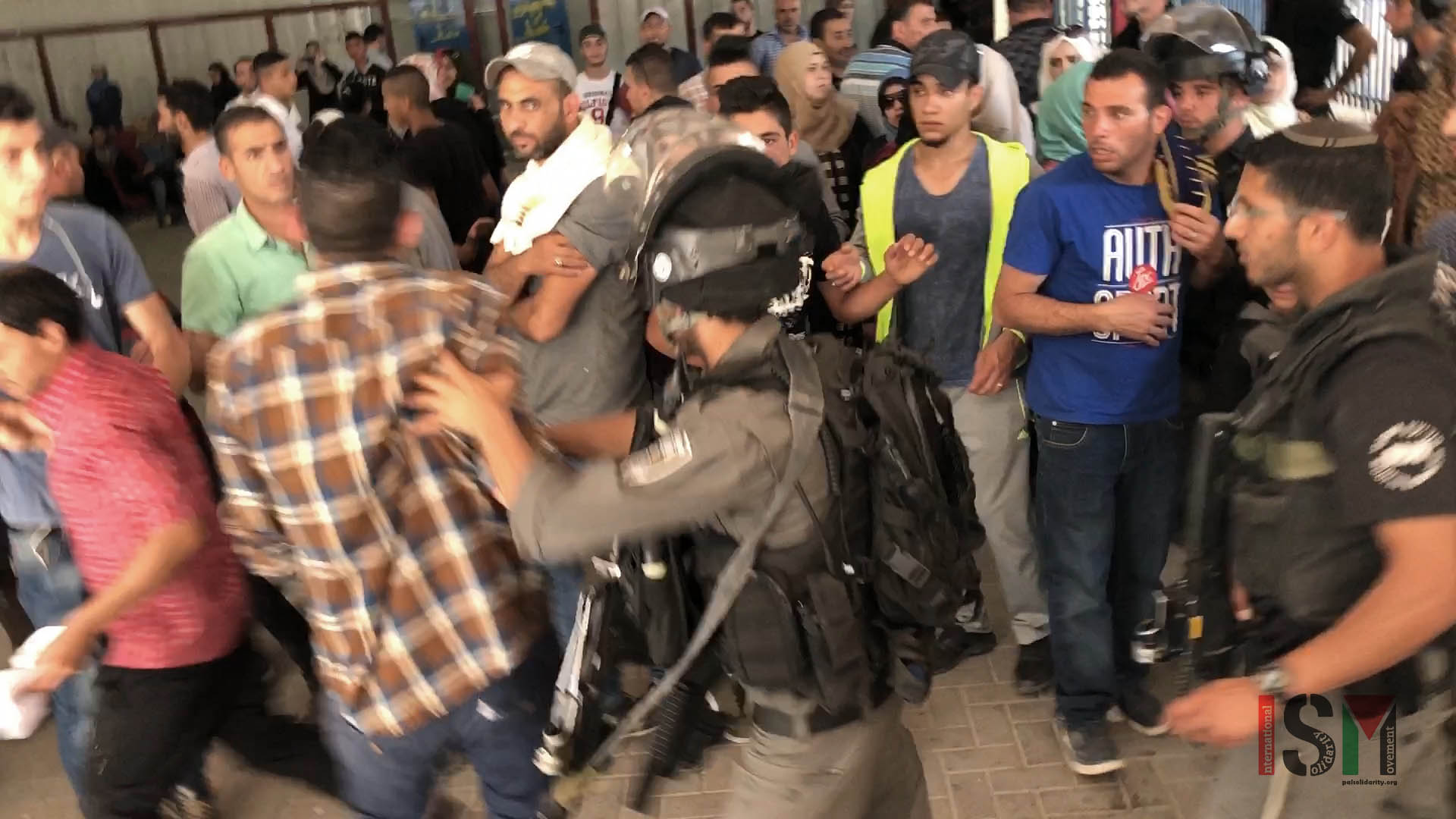Tag: Harassment
-
Residents of Tel Rumeida participate in two sit-ins at checkpoints to demonstrate against increased harrassment in the area
23rd June 2018 | International Solidarity Movement, Al-Khalil Team | Hebron, occupied Palestine On Thursday the 21st of June, a group of around a hundred Palestinian residents of Tel Rumeida gathered at the checkpoint outside of the Jabal Al Rahma mosque to protest against the constant delays, harassment and humiliation that happen in the area. A…
-
Israeli forces harass and assault Palestinians at Qalandiya checkpoint
Throughout the morning of Friday 8th June, many Palestinians passed through Qalandiya checkpoint into Israeli-occupied East Jerusalem, in order to pray at the Al-Aqsa mosque. The Israeli government allows a slight easing of the travel restrictions that ban most Palestinians in the West Bank from entering Jerusalem, only for Friday prayers during the month of…
-
Daily harassment and boycott of Palestinian businesses in the Old City of Jerusalem
22th January 2016 | International Solidarity Movement, Ramallah Team | Jerusalem, occupied Palestine Three days ago, the ISM visited the Old City in Jerusalem to talk with different Palestinian residents who live and work there and see what the situation is like nowadays. Harassment by the Israeli Police, particularly on the youth, is a…



